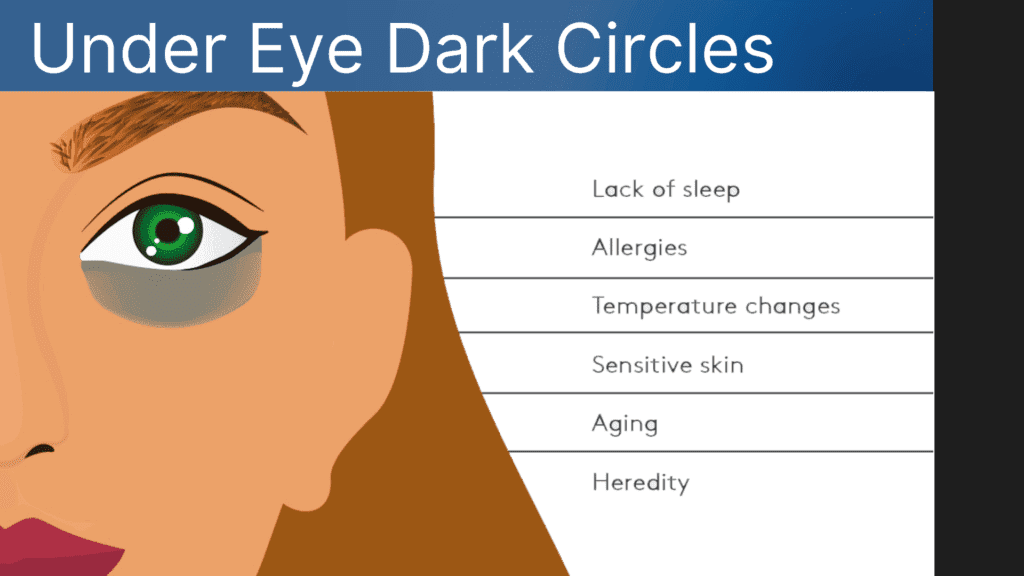Dark Circles
Introduction
Skin around the eyes is commonly affected by dark circles, which is a cosmetic issue. Under the eyes, they appear as dark or discoloured spots, which can age or ill-at-ease a person. Various variables, such as genetics, aging, lifestyle choices, and underlying medical conditions, frequently contribute to dark circles. Compared to other parts of the face, the skin around the eyes is softer and more fragile. A person’s skin thins and loses collagen as they age, which can make the blood vessels under their skin more noticeable and give them a darker look.
Dark circles can also form as a result of lifestyle choices. Dark circles can occur due to a variety of factors, including insufficient sleep, too much sun exposure, and poor nutrition.

Pathophysiology
The prevalent scalp condition known as dandruff is characterised by the scalp’s shedding of dead skin cells. Although the precise pathophysiology of dandruff is not fully known, it is believed to be brought on by a number of elements, including genetics, hormones, and an overgrowth of a yeast-like fungus called Malassezia. Dandruff can cause the scalp to become inflamed and irritated, which can make the situation worse. In addition to causing more dandruff, scratching the scalp to alleviate itching can also cause skin cells to shed. Overall, there are many different variables that play a role in the pathophysiology of dandruff. To control Malassezia development, lessen inflammation, and stop itching, therapies typically combine medicated shampoos and topical medications.
Signs and Symptoms
Under-eye areas that are dark and discoloured are the main sign of dark circles. These spots could be dark, blue, or purple in colour and could have a sunken or hollow appearance. The skin around the eyes may occasionally be swollen or puffy as well, which can amplify the look of dark circles.
Dark circles can be an aesthetic concern for many people because they can make someone appear tired, old, or unwell. While dark circles in and of themselves are not a medical condition, they may be an indication of underlying conditions like allergies, anemia, or thyroid disorders, which may result in additional symptoms like fatigue or difficulty focusing.

How do Dermatologists treat Dark Circles?
Dermatologists can offer several treatment options for dark circles, depending on the underlying cause and severity of the condition. These may include:
- Topical creams: Topical creams containing hydroquinone, retinol, or vitamin C may be suggested by dermatologists as a way to lighten the face and conceal dark circles.
- Chemical peels: In a chemical peel, the top layer of skin is removed by applying a chemical solution to the epidermis. This may lessen the look of dark circles and help to improve the texture and tone of the skin.
- Injectable fillers: Hyaluronic acid, which can be used to fill in hollows under the eyes and lessen the appearance of dark circles, is an injectable filler that dermatologists occasionally suggest.
- Laser treatment: By focusing on the underlying blood vessels that are causing the discoloration, laser therapy can be used to lessen the appearance of dark circles. The general tone and texture of the skin around the eyes can be improved by doing this.
- Lifestyle changes: In addition to these medical remedies, dermatologists may suggest lifestyle modifications that can help to gradually lessen the look of dark circles. These include getting enough sleep, staying hydrated, and limiting sun exposure.
